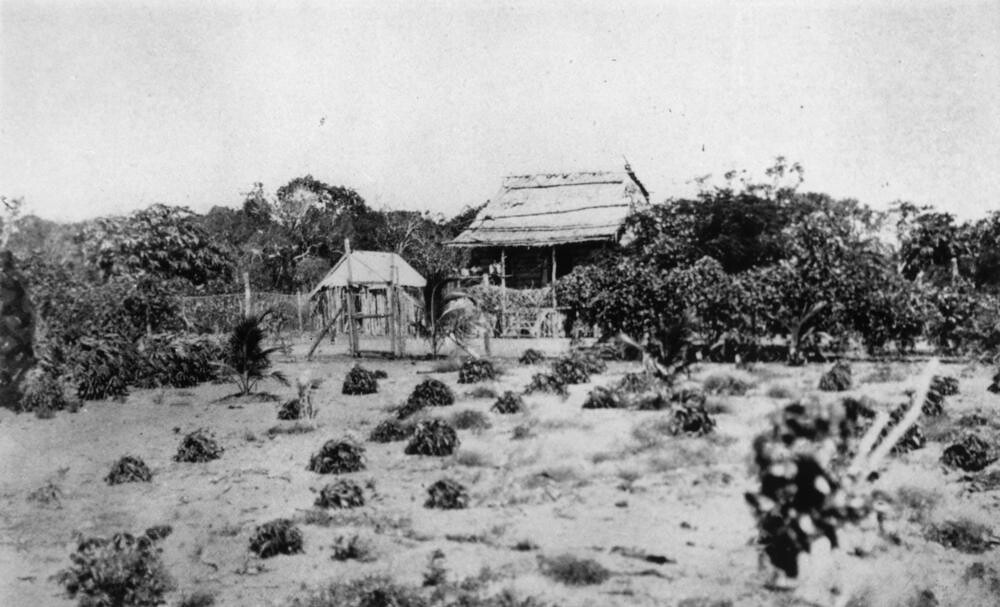The Question of Genocide in Australian History
In 1948, Australia was one of the first countries to sign the United Nations Convention on the Prevention and Punishment of the Crime of Genocide. In 1998, three Indigenous activists attempted to bring a case against the country’s then Prime Minister John Howard and several other prominent politicians. The letter they dispatched to all Members of Parliament and Senators, as well as foreign diplomats and the UN read, in part:
“The Commonwealth of Australia is responsible for past, present and continuing genocide; attempt to commit genocide and complicity in genocide against the original peoples of the land claimed by the commonwealth of Australia to be under its sovereign administration.”
In 1949, the Genocide Convention Bill, written to approve Australia’s ratification of the UN Convention on Genocide received bipartisan support in Parliament. But in the intervening years, despite being an enthusiastic signatory, Australia had not enacted it’s articles into law, and, though there were other findings against the appellants in the case against Howard et al, there was no corresponding law in Australia that dealt with the specific crime of genocide to be prosecuted in the first place. This legal situation has not been sufficiently remedied.
Meanwhile the national conversation about genocide; in Australian colonial history, in modern governmental policies and its remnants in current systems, is fraught.
Genocide is a profoundly confronting, disturbing subject; most people have very strong views about genocide and rightly associate it with events like the Nazi holocaust, Pol Pot’s campaign of slaughter in Cambodia, or the horrors of Rwanda.
While many are deeply disturbed by the suggestion that genocide could be invoked to characterize the Australian colonial history/experience of Australia’s First Nations, and many reject and repudiate the claim, others believe that the strongest moral and criminal terms are indeed warranted to condemn aspects of Australian colonization. And many have argued that there are at least three or four distinct, intended attempts or instances of genocide in historical and modern Australia.
The term ‘genocide’ was adopted after WWII as a way of comprehending in moral terms and prosecuting in legal terms the crimes of the Nazis against the Jewish people across Europe.
In the present UN Convention, genocide is defined as any of the following acts committed with intent to destroy, in whole or in part, a national, ethnic, racial, or religious group, as such: killing members of the group; causing serious bodily or mental harm to members of the group; inflicting on the group conditions of life calculated to bring about its physical destruction in whole or in part; imposing measures intended to prevent births within the group; forcibly transferring children of the group to another group.
Hannah Arendt, following her coverage of the trial in Jerusalem of Adolf Eichmann, defined genocide as ‘the desire that a certain distinct people disappear from the earth.’ Her definition tries to grapple with the moral terribleness of attempting to expunge an entire people from existence. Thus the concept of genocide is a unique moral category through which to apprehend the particular character of acts driven by the intention to destroy a people.
Genocide need not refer to the kinds of atrocities, or scale on which they occurred, of the Nazi Holocaust; there is much more to the concept than mass murder – the attempt to destroy a human group in whole or in part can take many forms.
When Australia supported the convention there was a notable, and seemingly unquestioned, absence of any second thoughts regarding colonial or modern Australian treatment of Aborigines. Indeed, forcible removal of Aboriginal children intensified in the twentieth century and was carried out until the 1970’s.
During the proceedings surrounding Australia’s adoption of the Genocide Convention Bill (to approve Australia’s ratification of the Convention) one Member of Parliament said, of Australia:
“That we detest all forms of genocide and desire to remove them arises from the fact that we are a moral people. The fact that we have a clean record allows us to take such an attitude regarding genocide.”
This seems, even given the prevailing views of Australian history, to have been an oddly blinkered view since Ralph Lemkin, the lawyer who first coined the term genocide to describe the Holocaust (just a few years before it was adopted by the UN), thought it had many historical precedents and he mentioned in particular the actions of the Tasmanian colonial government of the 1820s and 30s which resulted in the virtual extermination of the Tasmanian Aborigines during that period of colonial expansionism.
During the frontier wars of the early years in all areas of colonial settlement and expansion through the continent of Australia First Nations people resisted and fought back against the British; but as those wars escalated in the 1800’s there were many instances of mass killings of Aborigines by white settlers.
In official literature and settler records (letters, diaries and the like) there are numerous characterizations of the colonial relation with the indigene as one of extermination. Some accounts endorse this and some find it regrettable. Massacres continued into the early twentieth century, after which a policy of forcible removal of children from Aboriginal parents into missions or non-Aboriginal households continued in various forms until into the 1970’s.
As per the UN Convention, genocide means “acts committed with the intent to destroy, in whole or in part, a national, ethnical, racial or religious group as such…” The inclusion of “intent” has been a major, and contentious, issue in how genocide is defined, and how it is identified as such.
Intent is problematic, of course, because it can be hard to prove – but also it is problematic in case there is thought to be a disparity between the intention (of the state, or significant actors) to bring about an outcome and the failure to prevent it or cease activities that result in it. Thus genocidal intent can be particularly difficult to isolate in some situations of war, and in the context of colonization.
Thinking about the effects of colonization on Australian Aborigines (and on Indigenous people the world over) raises the question of whether colonization itself is a genocidal project, and how the inclusion of ‘intent’ in the conventional and legal definition can be located in that question; notwithstanding those specific episodes in both colonial and modern Australia that can be pointedly identified as candidates for the crime of genocide.
Scholars and activists, as mentioned above, have long considered the events in Tasmania to be a relatively clear case of genocide. Following a systematic campaign of dispossession and murder, in 1833 the remaining Tasmanian Aborigines were removed by the government to Flinders’ Island. Even as, in historical records, there are ample expressions of regret, gestures of paternalism, and attempts to “provide them every comfort,” this was understood at the time to be the terminus of Tasmanian Aboriginal culture. Flinders’ Island was essentially a place of death in whose confines the population declined so dramatically that demographic recovery was impossible.
On the fraught question of intention it is not altogether clear where its relationship to culpability stands. Does the intention have to be primary? Is it, for instance, to be considered genocide if the government of the day foresaw probable extinction of Aborigines as an effect of their policies yet carried on those policies unchanged? Is it genocide if, without (perhaps) the primary intention to destroy a human group, a government or other dominant social group carried out activities that hastened the extermination of the culture — such as forcible dispossession of traditional and tribal lands, deprivation of resources depended upon for survival, massacre, incarceration, forcible re-education of children including loss of language and forced removal of children from Aboriginal families? Given this (incomplete) list of atrocities, it is really not a great stretch to identify the behavior of colonists and subsequent Australian governments as carrying out acts of genocide.
Lemkin argued that genocide is not just forced assimilation but a policy that by drastic methods “aimed at the rapid and complete disappearance of the cultural, moral and religious life of a group of human beings.” For Lemkin, genocide is present when a coordinated plan of actions is aimed at the destruction of the essential foundations of the life of an ethnic, cultural or national group. The conclusion that this applies at least to certain specific episodes in Australian colonial and modern history, if not the whole colonial project, seems inescapable.
The final article of the UN Convention on Genocide makes special mention of the practice of removing children. The case brought against the then Prime Minister in 1998 accused the Commonwealth of acts of genocide in the policy of forced removal of Aboriginal children from their Aboriginal families which took place in the decades from 1010 to 1970. The victims of this policy are now referred to as ‘the Stolen Generations.’
This policy was designed to isolate Aboriginal children from their families and their cultures, and to destroy their relation to land and extinguish their traditional languages. The disastrous effects of this policy on the communities, families, culture, and individual lives of Aboriginal people throughout the nation continues to cause deep cultural trauma and affect health and social outcomes for Aboriginal people. It remains a deep wound in the national psyche for the whole country.
That genocide can take different forms does not render mass murder of Jews in gas chambers equivalent, in one sense, with forced removal of children from their parents – these things are clearly not morally equivalent in every way; nevertheless both belong to the moral category of genocide, and both have what Australian philosopher Rai Gaita has called “the inexpungible moral dimensions” of genocide, whatever the forms it takes or actions that entail it.
Even in the absence of a specific law in Australia, which makes prosecution of cases of genocide virtually impossible, understanding the necessity of the concept of genocide as a category to name the particular moral terribleness of attempting to expunge an entire human group and their particular, unique instantiation of humanity, is essential. This is true even though thinking about Australian history through that moral lens is extremely painful. As it is not clear that Australia can heal these wounds.
Healing, in the sense of making it better, may not be possible, but we have to show up to the conversation prepared to hear and tell the truth about our history, with the courage to acknowledge the role of genocide in that history.





